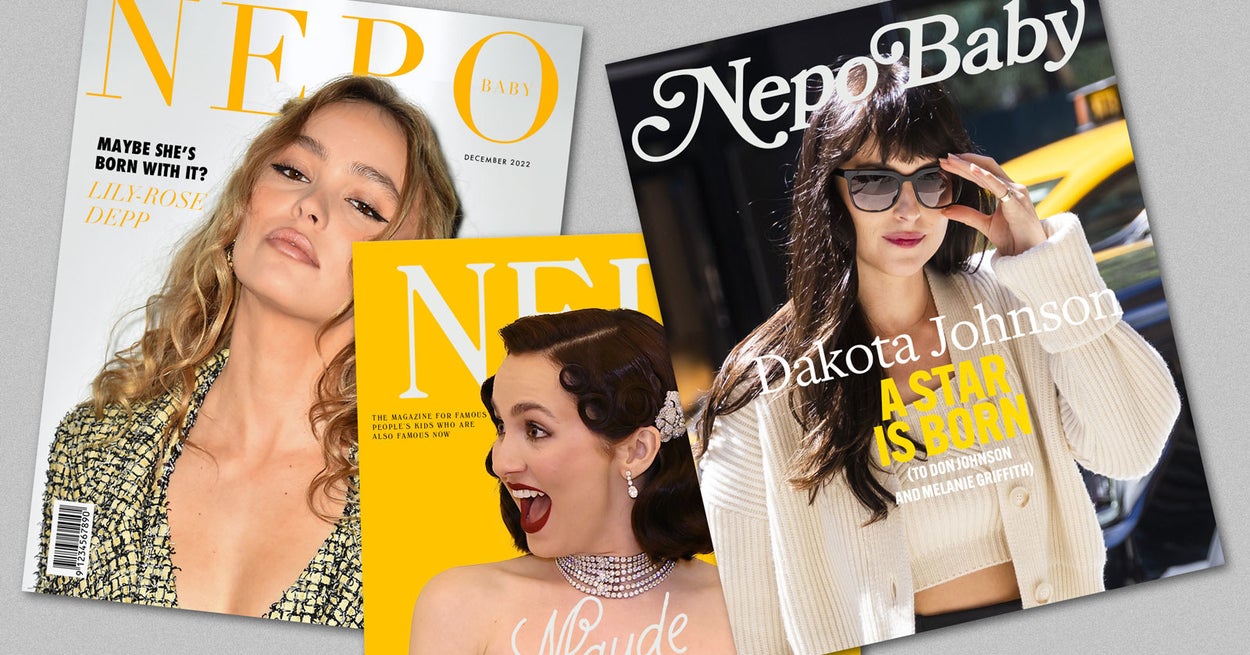
Some have already pointed out hypocrisy to happily trace celebrity nepotism, Tweeter: “This [article] is tall. Now someone is making one for journalists. Direct parent-child nepotism affects many industries, including this one (as New York magazine briefly mentioned). But it’s worth probing the more subtle nuances of nepotism.
Sometimes hiring practices become nepotistic because it’s efficient. In James Ledbetter’s 1995 report “The Insufferable Whiteness of Publishing”, a former book editor at WW Norton wrote of the ease of filling an editorial assistant position: “I lift my little finger and resumes more stupendous are coming to my desk. They come from a network of agents, writers and scholars. … It’s not really an open process. It is not closed consciously, but it does not seem to have to open. The benefactors of this closed system are not quite nepo babies – they are not famous, nor are their parents – but they reap the rewards of a kind of parallel privilege. They know someone who knows someone. On the path of least resistance, they are supported first.
Or take the children from Legacy Admissions, who get relaxed requirements to gain entry into their parents’ alma mater. It’s a category that certainly overlaps nepo babies, as in the spectacular shipwreck of Olivia Jade, daughter of Full houseof Lori Loughlin and face of the 2019 Varsity Blues scandal, in which rich and famous families were found buying their children’s admissions to elite universities. But the entire higher education pipeline, in which kids from expensive private schools are fast-tracked to brand-name liberal arts colleges to corporate jobs with six-figure salaries for discounts on school passes pass for their admission of children, is its own closed system. He favors the same family lines again and again. The flip side is the school-to-jail pipeline, in which underfunded public schools discipline students through a growing chain of zero-tolerance practices that begin with suspensions and expulsions and frequently lead to detention. juvenile, which puts children up with early criminal records that hinder their employment and housing prospects as adults.
As for the impulse to trace the family trees of nepo babies, it essentially begs us to bring up the case of reparations. As we trace Dakota Johnson’s fame back to her grandmother, movie star Tippi Hedren, it becomes impossible not to wonder: if privilege is so obviously hereditary, isn’t oppression? not as well ? What if your grandmother wasn’t a Golden Globe-winning actress and model in the 1960s, but a civil rights activist imprisoned for her time protesting? What if incarceration is the legacy America wants to impose on you?
The baby nepo talk obscures the very injustice it exemplifies because it seems silly to spend so much time thinking about it. Even the New York magazine calls its own in-depth category “absurdly detailed” and “slightly deranged.” But beyond blatant celebrity nepotism, there is a larger and murkier field of privilege, a fishing net in which we are all caught. If all we do with these revelations of nepotism is talk about who we like or dislike, the nepo babies win again. We get stuck talking about their star power, their rights, their defensiveness, what they do or don’t deserve. We decide they are the most important part of this story.
But nepo babies are the twinkling tip of the critical class iceberg. The spectrum of their privilege, painfully mapped out by the New York magazine, is very narrow. If you continue to expand outward, mapping the privileges granted to certain wealthy people because of what their parents know or do, you will fall into a much larger conspiracy: there is no no meritocracies, in Hollywood or elsewhere. Every industry and institution is tainted by the feedback loop of generational wealth. We can let this latest celebrity heckling glorify itself, or we can choose to push on it, challenging ourselves to face the moment with deeper reflection on how power works everywhere. ●

Comments
Post a Comment